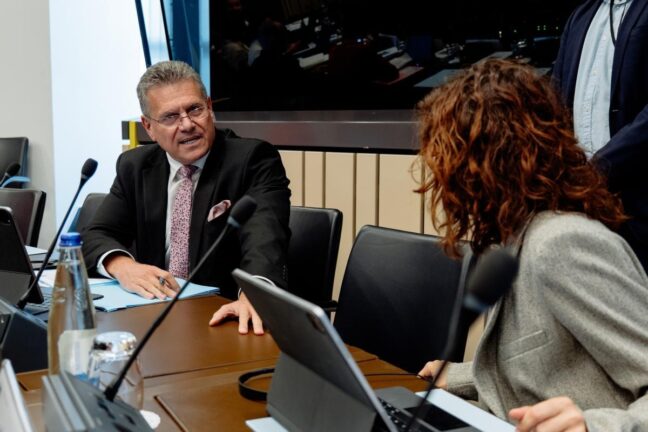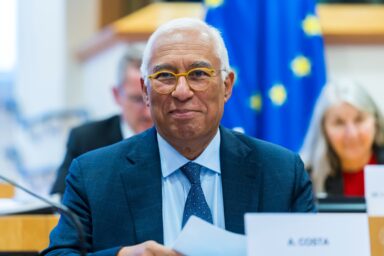The European Commission has presented a proposal to protect the steel sector from the impacts of global overcapacity – a step it sees as vital to shield the industry and prevent additional job losses. The proposal, which would replace the current safeguard measures expiring in June 2026, was confirmed by top officials following the College meeting.
The decision, which had been anticipated, follows commitments set out in the steel and metals action plan. In a press release and post-College meeting with reporters, the Commission said the measures upheld principles of open trade while reinforcing cooperation with global partners to address structural overcapacity. Under the proposed system, annual tariff-free steel imports will drop to 18.3 million tonnes – a 47 per cent reduction compared to 2024 quota levels.
In addition, out-of-quota duties would double to a considerable 50 per cent – a move not very much welcomed, for example, by the UK’s steel industry, already hit by a harsh 25 per cent US trade tariff (like the EU). The proposal also introduces a “melt and pour” requirement to trace the origin of steel and improve transparency throughout the production chain.
Commission responds to industry calls
The EU’s Executive Vice-President for Prosperity and Industrial Strategy, Stéphane Séjourné, said on Tuesday that the Commission had worked closely with industry on the proposal and urged swift action: “This is a legislative proposal,” he said, “and it will require approval from the Parliament and the Council, so let’s move ahead quickly.”
Speaking after the vice-president, Commissioner for Trade Maroš Šefčovič called steel the cornerstone of the European economy, but described how far the sector had fallen over the last 15 years. He said global overcapacity, fueled by non-market practices, was undermining the industry.
You might be interested
“In just a decade, the EU steel trade balance deteriorated dramatically, from a 10 million tonne surplus to an 11 million tonne deficit. Steel production is declining, with 65 million tonnes lost since 2007 – and nearly half of that happened since 2018.”
Significantly, the commissioner stressed that capacity utilisation had fallen to just 67 per cent – well below the 80 per cent industry benchmark – and the sector had shed 30,000 jobs since 2018. He warned that overcapacity would only grow, not ease. “While third countries are closing off their markets,” he said, “the EU must act too – decisively, and after consultations with stakeholders.”
Ahead of the curve
The Commission has previously faced criticism from parts of industry and Parliament for not acting early enough to shield heavy industry from global pressures. This time it is hoping get ahead of the curve with steps to strengthen protections, safeguard jobs and support decarbonisation goals. It also stresses the need to tackle global overcapacity through international cooperation, including within the Global Forum on Steel Excess Capacity. The proposal complies with WTO rules and aims to avoid any protection gap when current measures expire.
Steel remains a key material for the economy and plays a central role in the green transition. It serves multiple strategic sectors, including defence. The EU ranks as the world’s third-largest steel producer, employing around 300,000 people directly and supporting an estimated 2.5 million jobs across more than 20 member states. Many regional economies depend on steel production sites as economic linchpins.
Broad support for stronger trade measures
To address these challenges, the Commission committed to preparing new trade defence measures in the steel and metals action plan published in March 2025. President von der Leyen reiterated that commitment in her 2025 state of the union address in September.
The proposal builds on economic analysis and feedback from a targeted consultation held over the summer. More than 500 responses came from producers, users and member states. The vast majority supported reducing tariff quotas and increasing out-of-quota duties to ensure the long-term viability of the steel industry, the Commission stated.











